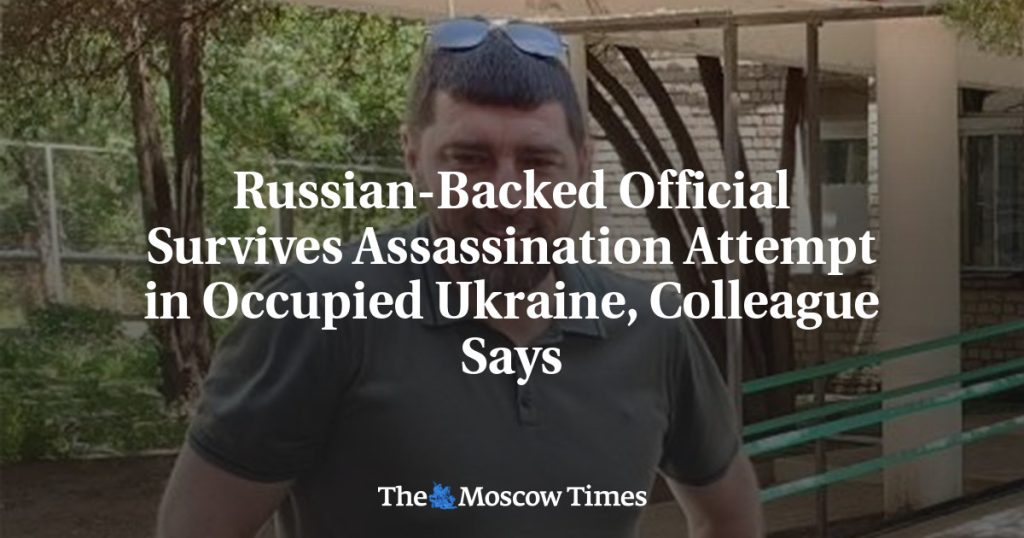A Russian-installed official in Ukraine’s occupied Zaporizhzhia region, Anton Yakimenko, survived an assassination attempt at his workplace. Yakimenko sits on Zaporizhzhia’s Yakimivka district council, is a member of the pro-Kremlin United Russia party, and heads a local affiliate of the Russian state-run grain operator GUP GZO Akimovskoye. The explosive device placed at the garage gate detonated when Yakimenko opened it, but fortunately, he was only grazed by the explosion. His colleague Vladimir Rogov shared the details on the Telegram messaging app, mentioning that Yakimenko’s life was not in danger. The identity of the person who planted the explosive device remains unknown.
Vladimir Rogov, a local pro-Russian politician, immediately blamed “Ukrainian terrorists” for the assassination attempt on Anton Yakimenko. He noted that investigators were already at the scene of the attack, gathering evidence and interviewing witnesses. Since the invasion of Ukraine in early 2022, several former Ukrainian officials who defected to Russia, Moscow-installed officials in occupied Ukrainian territories, and Russian pro-war figures have been the targets of assassination attempts. Moscow has consistently attributed these attacks to Kyiv. Following the 2022 referendums that Ukraine and the West rejected as illegitimate, Russia claimed to have annexed several regions, including Donetsk, Luhansk, Kherson, and Zaporizhzhia.
The assassination attempt on Anton Yakimenko is part of a larger pattern of violence targeting individuals associated with Russia in Ukraine’s occupied territories. This incident underscores the ongoing tensions between pro-Russian factions and Ukrainian forces, as well as the complex political dynamics in the region. The fact that Yakimenko was only grazed by the explosion suggests that the attack may have been meant to send a message rather than cause serious harm. The immediate attribution of the attack to “Ukrainian terrorists” highlights the deep suspicions and animosities between the conflicting parties.
The use of explosive devices in assassination attempts underscores the high stakes involved in the conflict between Russia and Ukraine. Both sides have resorted to violence and targeted killings as a means of advancing their political agendas and asserting control over the disputed territories. The fact that Moscow consistently blames Kyiv for such attacks suggests a broader narrative of victimization and aggression that both sides are perpetuating. The lack of clarity regarding the identity of the perpetrators highlights the challenges of investigating and prosecuting such crimes in a volatile and chaotic environment.
The survival of Anton Yakimenko despite the assassination attempt may lead to increased tensions and security measures in the region. Both pro-Russian and pro-Ukrainian forces are likely to react to this incident, further fueling the cycle of violence and retribution that has characterized the conflict. The implications of this attack for the wider geopolitical situation in Ukraine and the region remain to be seen, but it is clear that the conflict shows no signs of abating. The international community will be closely monitoring developments in Ukraine and working towards a peaceful resolution to the crisis.















